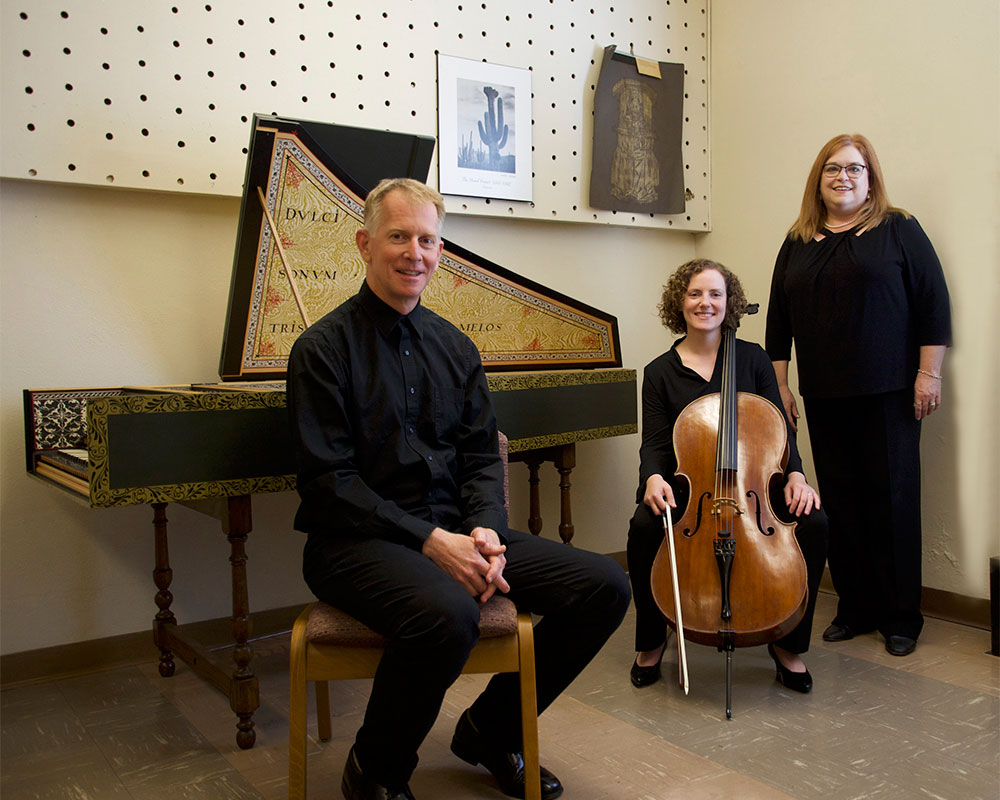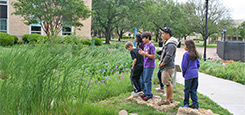 Dr. Julia Shahid, Austin College associate professor of education, will present a lecture, “Pandemic Pivot” on Wednesday, September 22, at 5 p.m. in Wright Campus Center’s Mabee Hall. A reception will precede the lecture at 4 p.m. in the adjacent Johnson Gallery. The lecture is one in the Bernice S. Melvin Sabbatical Series hosted by the College’s Robert and Joyce Johnson Center for Faculty Development and Excellence in Teaching. The event is free and open to the public as well as the campus community. Attendees must wear masks for COVID protection inside all Austin College buildings.
Dr. Julia Shahid, Austin College associate professor of education, will present a lecture, “Pandemic Pivot” on Wednesday, September 22, at 5 p.m. in Wright Campus Center’s Mabee Hall. A reception will precede the lecture at 4 p.m. in the adjacent Johnson Gallery. The lecture is one in the Bernice S. Melvin Sabbatical Series hosted by the College’s Robert and Joyce Johnson Center for Faculty Development and Excellence in Teaching. The event is free and open to the public as well as the campus community. Attendees must wear masks for COVID protection inside all Austin College buildings.
Shahid is a member of the faculty of Austin College’s Austin Teacher Program, which educates future teachers, culminating in the Master of Arts in Teaching degree. She has been a member of the Austin College faculty since 1999 and previously had more than 20 years of experience as a public school teacher, curriculum director, and principal.
Preparing for sabbatical during Spring Term 2020, she planned were to visit 12 ATP teachers in the field for follow-up observations and interviews, adding those to material from a previous sabbatical for a longitudinal study. “That was the plan,” Shahid said. “COVID derailed that plan.”
Her plans, like plans of individuals around the world, changed drastically. No one was going to school so she had no in-class teachers to observe. That’s when the various pivots came into play, she said. “I ended up tutoring my two grandchildren every day and got to see firsthand how they were adjusting to remote learning,” Shahid said. “This work informed my second pivot when I taught my Austin College graduate students in summer 2020. Ultimately the third pivot came when I began teaching last fall (2020) with the hy-flex model (both in-person and remote students).”
During her presentation, Shahid will share what she witnessed—and learned—in each stage of pivot.
Austin College’s Robert and Joyce Johnson Center for Faculty Development and Excellence in Teaching is directed by Dr. Andrea Overbay, associate professor of mathematics. Within the mission of the center is the encouragement of “bold exploration of intellectual frontiers” and “fostering lively intellectual dialogue within and across academic disciplines.”
The Bernice S. Melvin Sabbatical Series honors the late Professor Emerita of French Dr. Bernice Melvin, who taught at Austin College from 1980 until her retirement in 2015. As a department chair, dean of Humanities, and Johnson Center director, Bernice was an indefatigable supporter of faculty autonomy and research and fostered a collegial environment of scholarly creativity and innovation across all Austin College divisions and disciplines. She loved to hear her colleagues discuss their research and sabbatical experiences and was a driving force behind the “Tuesdays With” faculty presentations that were a precursor to the Johnson Center’s Sabbatical Series. She died in May 2020.
The Johnson Center schedules a number of events throughout the year, with presentations by Austin College faculty and guest lecturers.
Austin College, a private national liberal arts college located north of Dallas in Sherman, Texas, has earned a reputation for excellence in academic preparation, international study, pre-professional foundations, leadership development, committed faculty, and hands-on, adventurous learning opportunities. One of 40 schools profiled in Loren Pope’s influential book Colleges That Change Lives, Austin College boasts a welcoming community that embraces diversity and individuality, with more than 50 percent of students identifying as persons of color. The residential student body of approximately 1,300 students and more than 100 expert faculty members allow a 13:1 student-faculty ratio and personalized attention. Related by covenant to the Presbyterian Church (USA), Austin College cultivates an inclusive atmosphere that supports students’ faith journeys regardless of religious tradition. The College, founded in 1849, is the oldest institution of higher education in Texas operating under original name and charter.



